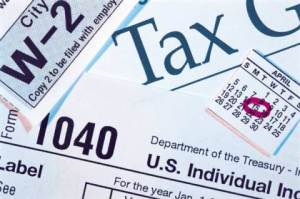 Today’s top story: Identity theft protection you may not know you already have. Also in the news: How auto insurers use you non-driving habits to raise prices, how younger consumers can get a credit boost from their elders, and how to close a credit card the right way.
Today’s top story: Identity theft protection you may not know you already have. Also in the news: How auto insurers use you non-driving habits to raise prices, how younger consumers can get a credit boost from their elders, and how to close a credit card the right way.
Identity Theft Protection You May Not Know You Already Have
Some surprising sources.
How Auto Insurers Use Your Nondriving Habits to Raise Prices
What you need to know about price optimization.
Younger Consumers, Get a Credit Boost From Your Elders
Authorized user status could give you a boost.
How to Close a Credit Card The Right Way
Protecting your credit score.
 Today’s top story: Keeping Solo Agers happier and safer. Also in the news: A simple recipe for managing your credit score, how to choose between using your savings or getting a loan when hit with an unexpected expense, and how a few minutes on the phone could save you hundreds on auto insurance.
Today’s top story: Keeping Solo Agers happier and safer. Also in the news: A simple recipe for managing your credit score, how to choose between using your savings or getting a loan when hit with an unexpected expense, and how a few minutes on the phone could save you hundreds on auto insurance. Today’s top story: Think twice before paying for accident forgiveness. Also in the news: What to do when a fund in your portfolio closes, 5 Black Friday credit card strategies to add to your list, and how to get your finances in order.
Today’s top story: Think twice before paying for accident forgiveness. Also in the news: What to do when a fund in your portfolio closes, 5 Black Friday credit card strategies to add to your list, and how to get your finances in order. Today’s top story: 10 tax forms you need to know before you file. Also in the news: How Blacks took banking into their own hands, understanding collision and comprehensive insurance, and why you shouldn’t take financial advice from commercials.
Today’s top story: 10 tax forms you need to know before you file. Also in the news: How Blacks took banking into their own hands, understanding collision and comprehensive insurance, and why you shouldn’t take financial advice from commercials.  Today’s top story: How to prepare financially for your death regardless of your age. Also in the news: The best industries for starting a business in 2017, how insurance companies use your driving record as a crystal ball, and 5 practical steps for creating a retirement backup plan.
Today’s top story: How to prepare financially for your death regardless of your age. Also in the news: The best industries for starting a business in 2017, how insurance companies use your driving record as a crystal ball, and 5 practical steps for creating a retirement backup plan.  Today’s top story: Financial aid tips for procrastinators. Also in the news: Auto insurance in the driverless car era, payday alternative loans, and six ways your teen driver will affect your wallet.
Today’s top story: Financial aid tips for procrastinators. Also in the news: Auto insurance in the driverless car era, payday alternative loans, and six ways your teen driver will affect your wallet.